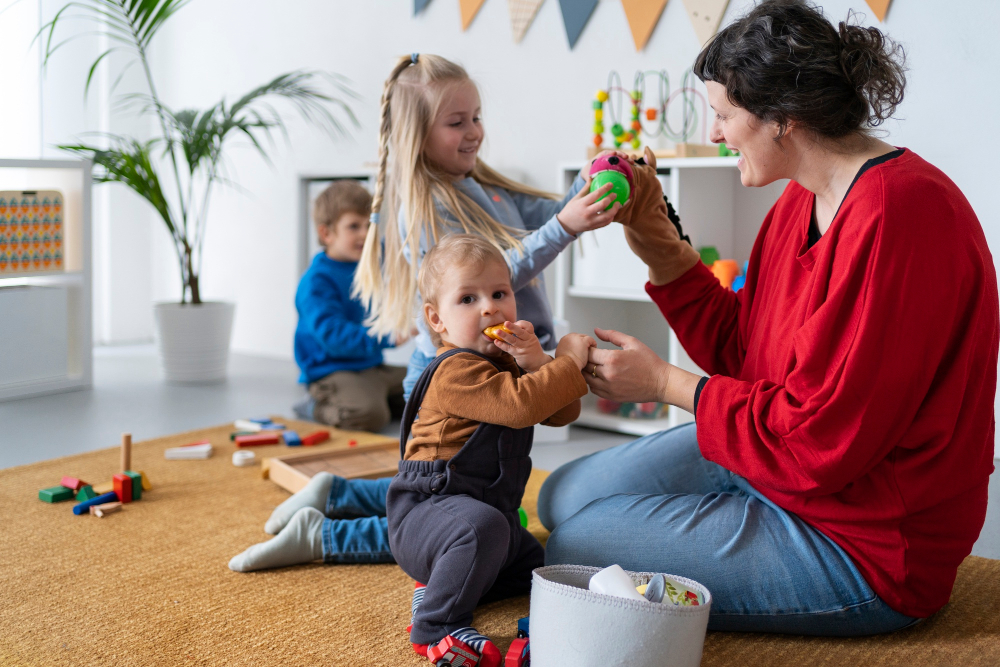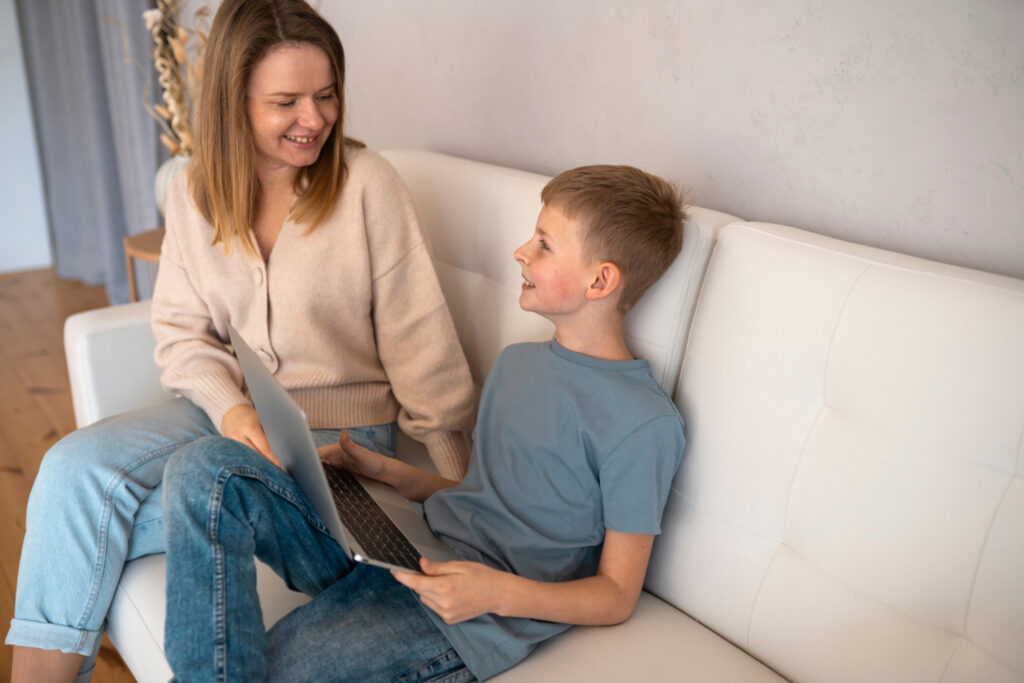Having a child is an exciting life change, and it can be an even bigger adventure if you’re raising them away from your home country.
Plenty of expats and internationals come to the Netherlands to work or study, and many are so charmed by this tiny country that they build not only careers but also families here.
But how do you raise a child in a country where you didn’t grow up yourself? What are the important things to know?
Great questions. Here’s how raising a child in the Netherlands is different from other places. 👇
1. The Netherlands has some of the best healthcare when it comes to children
The Netherlands has a lot of healthcare policies and medical practices that make pregnancy and birth easier for parents right from the beginning.
For example, having a midwife to guide you through pregnancy and birth is common, and it’s not unheard of to give birth at home if that makes mothers feel more comfortable.

New parents can also get special maternity care (kraamzorg), in which a nurse or social worker monitors the child’s growth and health and the mother’s general recovery and well-being.
The Netherlands offers comprehensive maternal healthcare and ensures that the whole family is comfortable and informed throughout the process — and we love to see it. 🙌
2. There are a variety of (affordable) childcare options for parents in the Netherlands
Childcare in the Netherlands could be a whole separate article — the options are comprehensive and diverse, and generally quite affordable as well.
Education in the Netherlands starts after the child turns four years old, but it only becomes mandatory once they turn five. You can enrol them in daycare (kinderdagverblijf) from infancy to four, or a kindergarten (peuterspeelzaal) from the age of two to four.
Good to know: Parents can claim childcare allowance (kinderopvangtoeslag) to help cover daycare and kindergarten costs. You can file a request to get the allowance with the Belastingdienst using your DigiD.
Finding childcare in a foreign country can often be very difficult, especially if you don’t have any family or close friends in the Netherlands who can occasionally watch your little one.

Luckily, it’s possible to look for babysitters in the Netherlands, especially if you want someone to look after your kids before you get home from work or if you want to plan a date night with your partner.
3. Parental leave policies help you balance work and childcare responsibilities
Both moeder (mother) and vader (father) are entitled to parental leave when you’re expecting an addition to the family.
Mothers are entitled to up to 16 weeks of paid parental leave (typically four to six weeks before and 10 to 12 weeks after birth), while fathers only get one week of paid paternity leave.

Parents can also take time off during the week to spend with their kids until they’re eight years old (often called a mama– or papadag or mother/father day).
Per child, a parent may take a maximum of 26 weeks off, out of which nine weeks will be paid if taken in the first year after childbirth, and 15 unpaid.
Overall, the Netherlands has plenty of arrangements that allow new parents to get used to their responsibilities and balance their work.
4. The Netherlands has a comprehensive and accommodating educational system
The Dutch education system can be particularly confusing if you’re not originally from the Netherlands, but regardless, it’s always prepared to take in a new student.
Primary education in the Netherlands is quite straightforward, starting at age five until around 12 years old.

Secondary education can last anywhere from four to six years, depending on the education stream your child goes into.
Finally, higher education can last between three and five years, depending on what study programme your child picks.
For expat children, Dutch schools have a special international transition class (internationale schakelklas), which helps international students prepare for going to a Dutch school.
Otherwise, there are plenty of great international schools for international families in the Netherlands.

The Dutch education system is one of the best in the world, and you can rest easy knowing it will happily accommodate international families.
5. Your child may eventually speak a language that you don’t
Unless you’re already fluent in Dutch, your child will likely learn and speak a language you don’t understand.

The upside? They can help you order your food at restaurants. The downside? They’ll know a secret language you don’t understand. 😎
Either way, if you’re planning to stay in the Netherlands long-term, it’s definitely worth learning Dutch so you can grow with your children as well.
6. Your child won’t shy away from taboo topics
In the Netherlands, children are encouraged to be curious about topics that are often considered ‘taboo’, like drugs and sex.
No subject is off-limits in the Netherlands, which can often go against certain cultural expectations for parenting.

Dutch parents intend to teach their kids to be open-minded and tolerant of differences, and this attitude is often present in education, sports, and socialising as well.
READ MORE | Sex education in the Netherlands: what the Dutch are getting right
If you’re raising a child in the Netherlands, it’s very likely they’ll grow up with the same attitudes.
Not shying away from taboo topics with your children will help them become more responsible, knowledgeable, and accepting.
7. Living in the Netherlands will encourage your children to be active and independent
When your kids grow up in the Netherlands, they will have plenty of opportunities to be active and gain independence.
READ MORE | How the Dutch raise their kids to be independent
For example, Dutch people value sports as a form of exercise and socialisation and often enrol their kids in sports to teach them teamwork, confidence, sportsmanship, and socialisation with people their age.

Other factors like infrastructure and public transport in the Netherlands also make it safe and easy for kids to travel around the city (and even the country!) on their own — whether that’s by tram, bus, train, or even bike!

These opportunities allow your kids to take charge, be independent, and apply some practical skills.
As an international parent, having a child in a new country can be really different from what you’re used to, and you may come from a country that has different expectations when it comes to parenting.
But rest assured, having a child as an international parent in the Netherlands doesn’t need to be difficult.
In fact, certain aspects can actually make raising children here even easier — so enjoy the ride!
Have you had a child in the Netherlands? What was your experience like? Tell us in the comments below!




Excellent,
Two of them, boys. Haganees.
The author of this article should have done more research when referring to “affordable” childcare (when other European countries have free childcare), parental leave schemes (again one of the worst in Europe) and the “best” healthcare system/ support during pregnancy